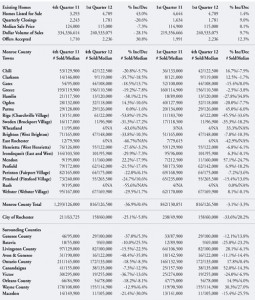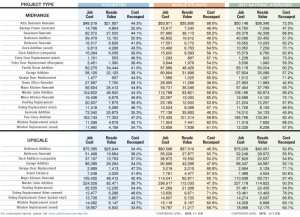By J-Man
Dear JMan, I have been looking to buy a house and there have been a couple homes that have really piqued my interest. The asking price is over the Assessed value, Does that mean they are over priced? How does one correlate to the other? Please help. I am a first time buyer and am really confused.
This question comes up quite often. The assessed value of a home is established by what the Town or municipality feels its worth. It can be right on, a little high or a little low. They do the best they can with the information that they are provided. I am sure you could imagine that on occasion there may be one or two homeowners that make improvements to the home and may forget to call the Town and let them know. It would almost be like them calling and saying “ Hi, my house is worth more now, can you please give me more taxes?” My advice would be to trust your Realtor. You have hired them for their expertise and the their market knowledge. They can pull current comparables in the area and tell what they feel its worth. They might even have shown some of the comparable properties and can tell you if you are comparing Apples to Apples or if some adjustments need to be made. I know that almost everyone likes to get a good “deal” but if your like the home and are comfortable with the payment then make it yours and write the offer. I have enclosed an excerpt from the Town of Greece website explaining what the Office of The Assessor does and maybe that will help you to understand the process. The process will vary Town ty Town and County to County but this provided just as an example. I am sure that your buyers agent will be looking out for your best interests and will recommend the “right” price. Keep in mind that the right price may be full price.
THIS IS FROM The Office of the Assessor is charged by New York State law with maintaining a uniform standard assessment of all real property within the Town of Greece. The Office of the Assessor is regulated by the New York State Real Property Tax Law (RPTL) and the Office of Real Property Services (ORPS).
Goals set forth: Maintain assessments as close to full market value as possible. Maintain property records utilizing state-of-the-art technologies. Work in conjunction with New York State to consistently apply all New York State Property Tax Laws inclusive of assessment procedures, records access, and exemptions.
Functions of the Assessor’s Office: Calculate, review and maintain assessment data property inventory, ownership, maps, and exemptions (in Greece this equates to approximately 33,000 parcels).
Prepare and maintain the town-wide assessment rolls and follow the assessment process calendar. Provide support to our constituents for the preparation and submission of tax exemptions (Seniors, Veterans, Basic STAR, Enhanced Senior Star, Disability, Business, Clergy, Agricultural and wholly exempt).
Review all building permits to determine any impact on the assessed value of property, update property records accordingly and notify property owners of any changes.
Provide customer support to our constituents regarding assessment of their property, exemptions and their rights under the New York State Real Property Tax Law.
Conduct ongoing reviews of property values including complete valuation updates as needed to maintain assessment at 100% of market value.
Review all deed information received from the County of Monroe to update property ownership information and any changes impacting the property’s value.
Review the basic information regarding the sales of real property for accuracy and any unusual conditions as described on the State Form EA-5217 which is completed at closing.
Have information available for sales activity and comparable assessments that may be beneficial in preparing for hearings or grievances .
Your guide to property assessment review in the Town of Greece.
In accordance with New York State law, the Town of Greece is required to maintain up-to-date assessment records. To meet the State’s guidelines, the Town of Greece conducted a valuation update for assessments in 2005
How the Valuation Process Works: Annual reassessment is the systematic review of town assessments to maintain a uniform percentage of value. A portion of the town’s assessments must be reviewed and adjusted annually so that all properties are reviewed within a six-year period. This requires the Assessor to analyze and evaluate the market, and change where appropriate, the assessment of properties each year to maintain the current market value. This allows the town to retain 100% equalization rate each year. The equalization rate is used in determining the value of the town’s exemptions (i.e. STAR, seniors, disabled etc.)
Why Assess Properties? In addition to keeping values up to date, a valuation update allows the Assessor to keep pace with property changes and market conditions as well as inequities which may exist in the assessment roll. A properly conducted valuation update will result in each property taxpayer paying their fair share.
Why does the valuation of my property need to be reviewed? The Town of Greece must perform valuation reviews in accordance with New York State law. The goal is to ensure that every property owner is responsible for their fair share.
Who determines assessments? The Town Assessor is responsible for assessing all of the properties at a uniform % of current market value. The Assessor bases the assessed value on information obtained through Mass Appraisals conducted on all properties, as determined by current market value. That is, the price a typical buyer would pay for your house in its present condition.
Please email all of your questions to ASKJMAN@JManSells.com and be sure to visit www.propertysourceblog for this and all past articles.

